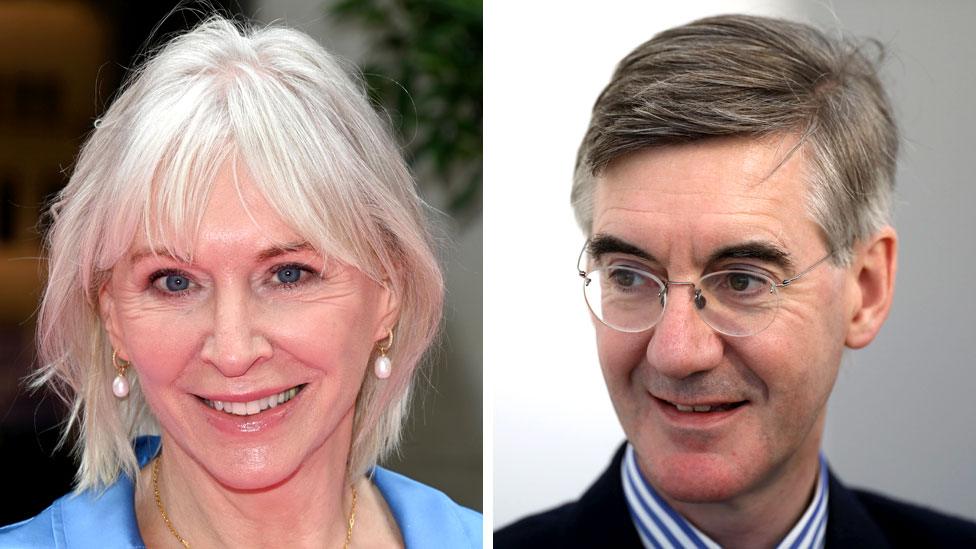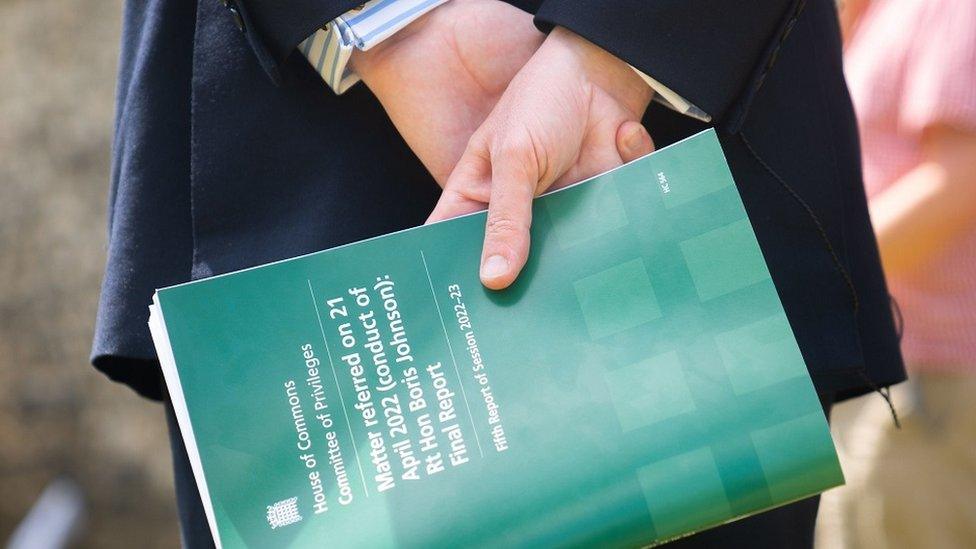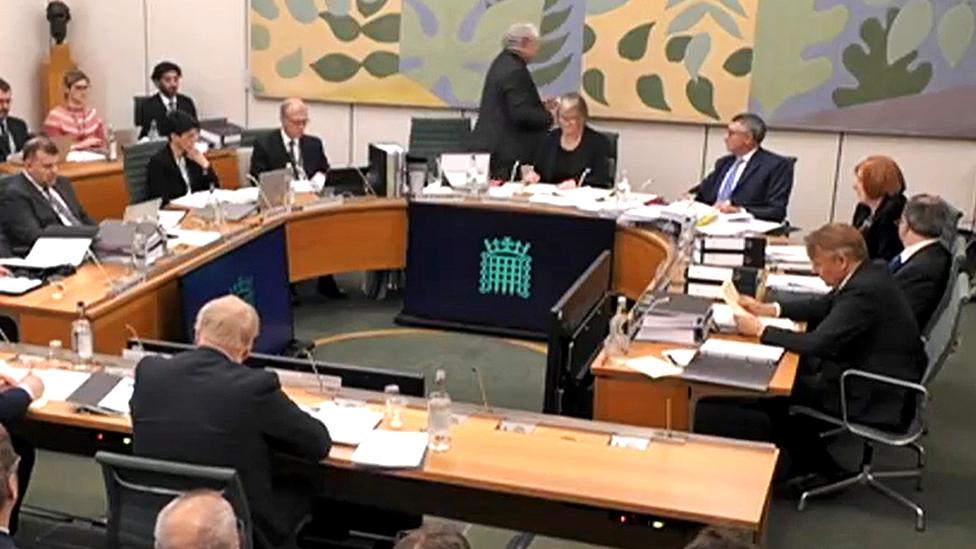Chris Mason: Free speech collides with Johnson committee doing its job
- Published

Allies of Boris Johnson have been accused of trying to interfere with a Commons investigation into the former prime minister
"Free speech is at the heart of parliamentary democracy. However..."
These are the crucial 10 words at the heart of the Special Report of the Privileges Committee, external.
And they prompt a tussle - between freedom of expression and the capacity of a committee of MPs to examine the conduct of a colleague without feeling their own integrity is being shredded by doing so.
Yes, this is about words. But is also about the coordination and intent of the critics.
It is worth pointing out that just 10 parliamentarians are named by the committee - seven MPs and three members of the House of Lords.
They are some of the most longstanding and vociferous supporters of Boris Johnson.
The overwhelming majority of others I speak to, across all parties, regard this as an exceptional case involving a hugely high-profile and divisive figure: Mr Johnson.
But that point made, the arguments here are angry and colourful.
"It is totally ridiculous. They behave like a court of law, with that level of pomposity. But they are not. They are a committee of MPs. And then they expect other MPs not to criticise them," a Conservative former cabinet minister tells me.
"Please, please let all this disappear into the rear view mirror," pleads a current minister. "We have got to move on from Boris Johnson."
Others, though, ponder who on earth would want to serve on the Privileges Committee - particularly in this instance if you are a Conservative MP - when you have a Tory colleague publicly suggesting having done so should or might have an impact on your future career?
And you have received 600 emails from Conservative supporters after a campaign instigated by two Tory peers suggesting you should resign from the committee "to protect your own integrity".
In short, as some saw it, Conservatives were appearing to trash the character of fellow Conservatives at a point, crucially, when those Tory MPs on the committee, and the others, could not respond publicly.
Coarsened debate
The nub of this is the forever grey area of what is perceived to be a responsible approach to freedom of speech.
And Downing Street can't absent itself from this debate: one of those named in the report is a government minister, Lord Goldsmith.
The prime minister's official spokesman told us Rishi Sunak has "full confidence" in Lord Goldsmith.
Incidentally, those who were named by this report were not told in advance that they would be.
The angry and often binary arguments of the Brexit years at Westminster - on all sides - coarsened the tenor and tone of political debate.
While many have since toned down the language, this is arguably a case study of its return.
Remember, it was Boris Johnson himself - among others - who drew a line between the Privileges Committee's conclusions and the result of the EU referendum seven years ago.
"I am not alone in thinking that there is a witch hunt under way, to take revenge for Brexit and ultimately to reverse the 2016 referendum result," Mr Johnson said as he announced his resignation from parliament.
Those on the committee insist categorically they sought to leave their affiliations - to their party, Brexit or anything else - at the door, and to examine the evidence in front of them dispassionately.
But, where Boris Johnson and indeed Brexit are concerned, there are many who will always find being dispassionate impossible.
Related topics
- Published29 June 2023

- Published15 June 2023

- Published15 June 2023
